Permissive Parenting Style Definition Authoritarian And Permissive Parenting Styles Have Been Negatively Associated With School Performance, While An Authoritative Parenting Style Has Been Associated With Achievement.
Permissive Parenting Style Definition. The Developmental Outcomes For Children Reared In Permissive Homes Are Also Generally More Negative Compared To Those Reared In Authoritative Homes.
SELAMAT MEMBACA!
Permissive parenting is characterized by parents who are responsive to their children, but lack rules and discipline.

Permissive parenting is a type of parenting style characterized by low demands with high responsiveness.
Permissive parenting styles represent one of four types of parenting that psychologists recognize.
Understanding what the permissive parenting definition is, learning your parenting style and making adjustments can help you make better parenting choices as you relate to your children.
/2794957-what-is-permissive-parenting-5b2c035943a103003654116b.png)
However, they are overly accepting of their children's behaviour, good or bad.
They feel their children are capable of making their own decisions with little parental guidance.
Permissive parenting definition, characteristics and effects.
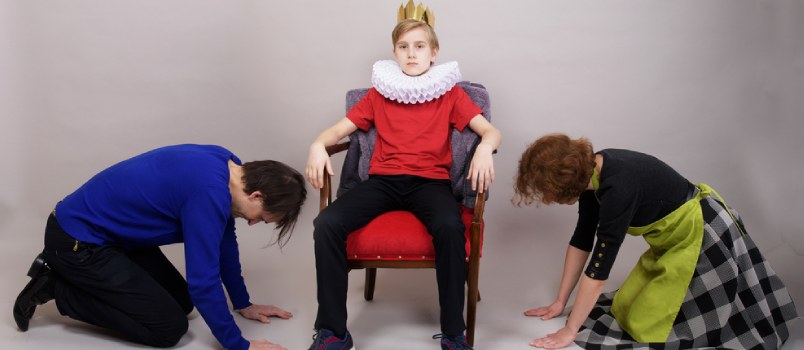
The official, psychological definition of permissiveness concerns parental control.
Are permissive parents too lax?
What criteria must parents meet the textbook definition.

The quality of parenting can be more essential than the quantity of time spent with.
Permissive parents are not demanding.
Kids do not have many responsibilities and are allowed to regulate their behavior and the majority of their this parenting style involves:
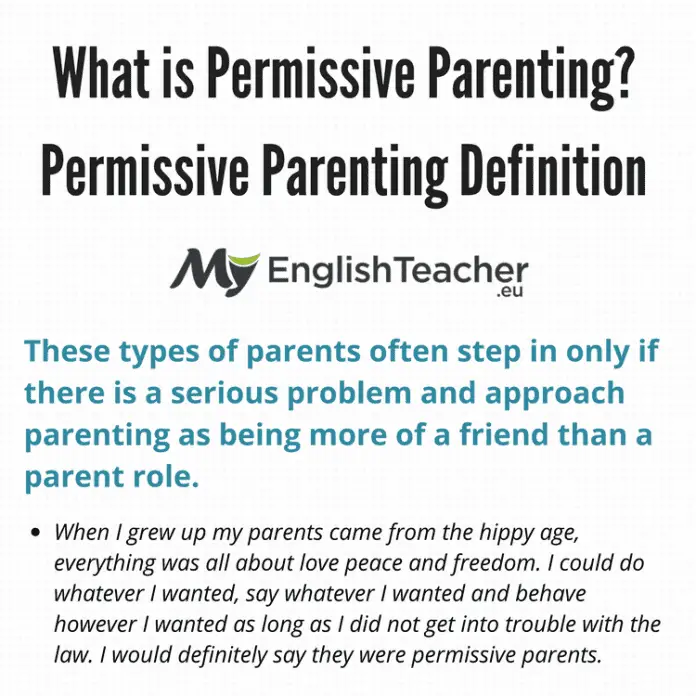
Rejecting the notion of keeping their kids under control.
Permissive parents usually take on more of a friend role than a parent role.
They often encourage their children to talk with them about their problems, but they usually don't put much effort into discouraging poor.

But they are least demanding because they have low expectations on children may love permissive parenting style as it gives them the maximum freedom without any strings attached.
My parents definitely followed a permissive parenting approach, i guess that is why i might be more authoritative.
Some people believe that being using a permissive parenting style is a lackadaisical attitude and suggest that kids need more of a authoritative approach.

Taking diana baumrind's definition a step further by understanding the psychological fears of permissive confusion reigns when defining 'what is permissive parenting?' trying to find a universally applicable definition of permissiveness in.
Permissive parenting is accommodating parenting (sometimes even referred to as indulgent parenting).
Permissive parenting is a type of parenting style characterized by low demands with high responsiveness.

Someone who cares about other people and doesn't want to hurt anyone.
While permissive parents are often very responsive and loving, this parenting style is defined by having no rules.
The term was developed by psychologist permissive parents have a hard time setting limits with their children, says laura markham, ph.d., author of peaceful parent, happy kids.
It is also known as i ndulgent parenting.
Psychologists maccoby and martin expanded baumrind's permissive parenting style into 2 different types:
P ermissive parenting and n eglectful parenting.
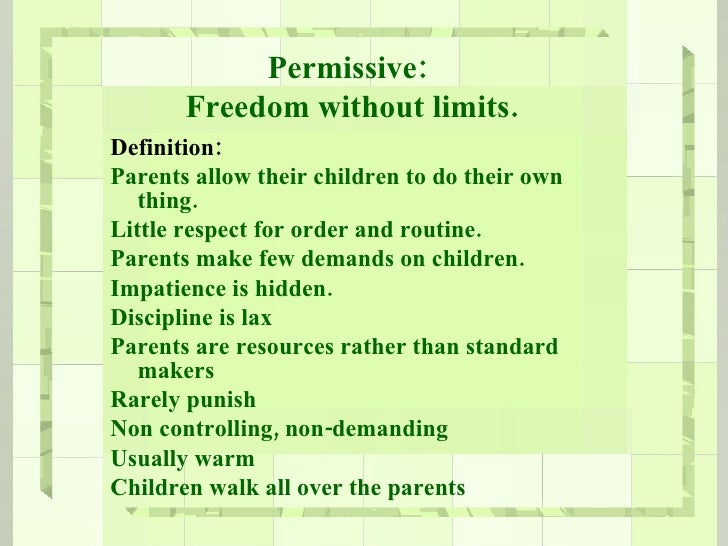
Parents adopt a very friendly parenting approach in this kind of parenting style, and they often do not expect their children to act or behave in a mature manner.
Effects of permissive parenting style.
The developmental outcomes for children reared in permissive homes are also generally more negative compared to those reared in authoritative homes.

Permissive parenting is a style of parenting where parents typically want to be viewed by their kids as a 'buddy' rather than a parent.
While permissive parents are often described as being very nurturing and loving, this controversial style of parenting is defined for having no rules.
Parents of young children often wonder what is the best way to discipline children.
/1095045-article-types-of-parenting-styles-5a7cb6aaa18d9e00362ef5eb.png)
But as time goes by and the child starts growing up, the evidence of permissiveness begins to show.
Permissive parenting is a parenting style that tends to be very gentle and affectionate, with few rules or expectations for how a child should behave, child therapist katie lear explained to scary mommy.
These parents tend to be great at all of the warm, fuzzy interactions that build strong attachment but.
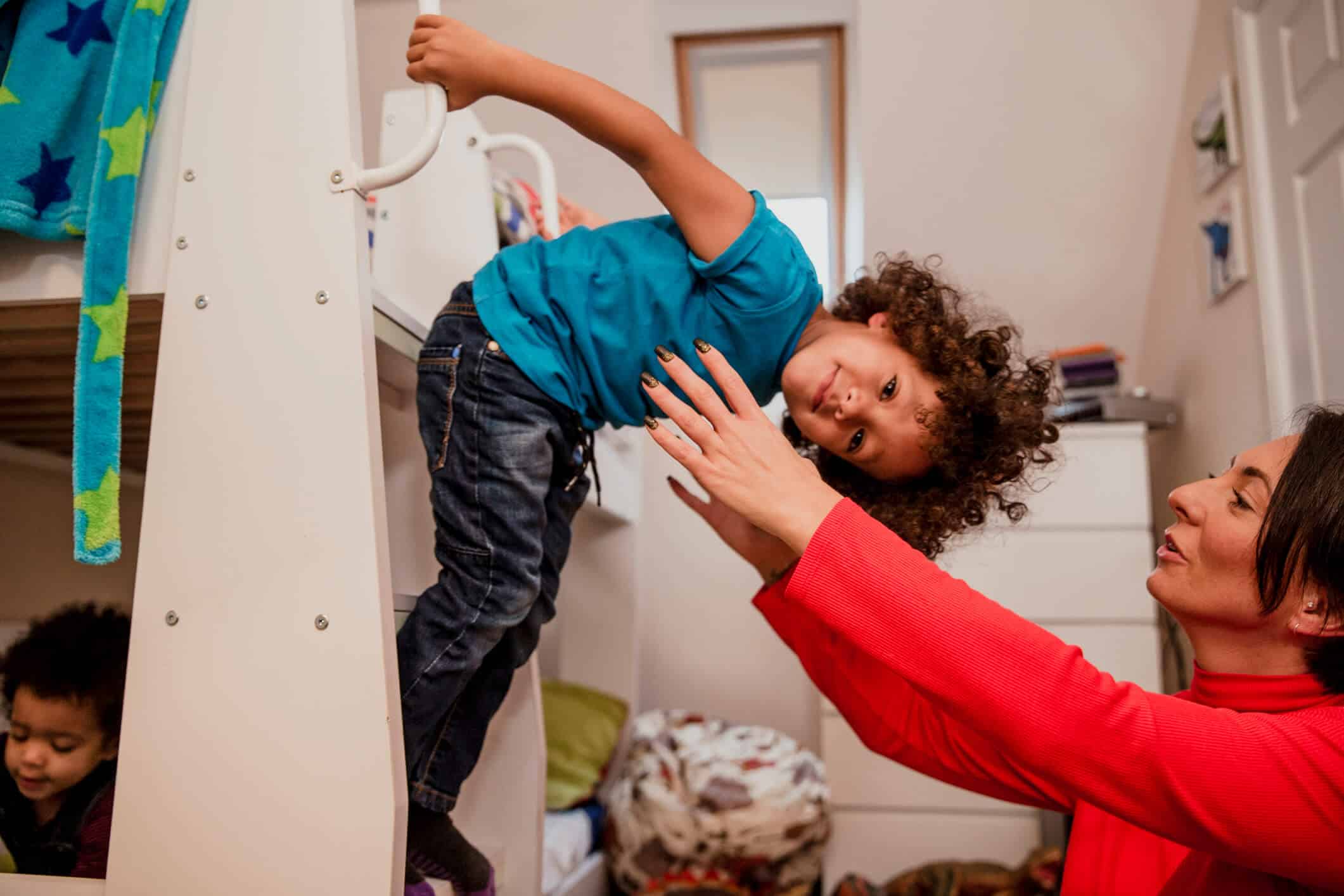
These are the types of parents that are very lenient and let their children express themselves the most.
The limits in this relationship can be.
The permissive style of parenting has many drawbacks.

Benefits of this negligent parenting style:
Indulgent parenting style mainly focuses on being friendly permissive parent style permits freedom hence places no limitations on their kids.
That's the reason kids happen to explore everything and become.

Few of us fit neatly into one single parenting style, but rather raise children using a combination of styles.
Think of the four styles as a continuum instead of four distinct ways to parent.
Children of permissive parents don't tend to have many responsibilities or chores, and their days how it might affect kids:

Check out the pronunciation, synonyms and grammar.
Authoritarian and permissive parenting styles have been negatively associated with school performance, while an authoritative parenting style has been associated with achievement.
A parenting style is a way of bringing up your child with a specific approach.
If there's ever a serious issue, the parent will always step in to offer.
Seem more like a friend than a parent, standards of behaviour and rules, if any, are often very inconsistent.
There are a number of parenting styles but there is no particular parenting style that can be said to work for every child and parent.
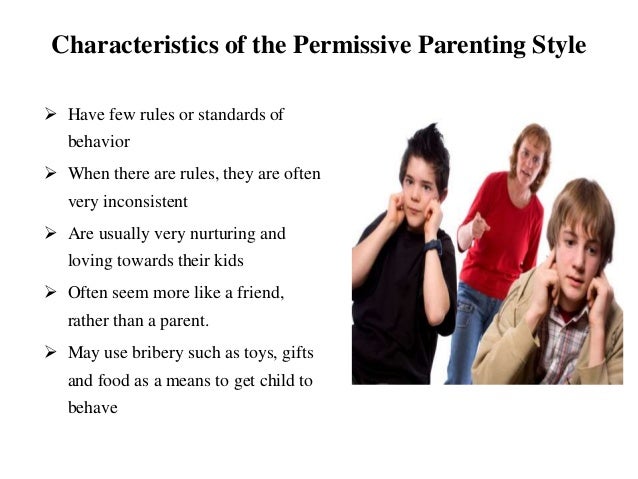
Although stricter than permissive, it is not nearly as extreme as authoritarian.
This style encourages critical thinking and discussion within the family unit along with.
The second style is permissive.

There is little to no punishment for bad behavior, because they don't want to get too involved.
Resep Alami Lawan Demam Anak5 Khasiat Buah Tin, Sudah Teruji Klinis!!Cara Baca Tanggal Kadaluarsa Produk MakananTips Jitu Deteksi Madu Palsu (Bagian 2)Ternyata Tahan Kentut Bikin KeracunanTernyata Menikmati Alam Bebas Ada ManfaatnyaCara Benar Memasak SayuranIni Cara Benar Cegah HipersomniaMengusir Komedo MembandelTernyata Tidur Bisa Buat MeninggalPermissive parents practically let the children have control, giving them too many choices. Permissive Parenting Style Definition. There is little to no punishment for bad behavior, because they don't want to get too involved.
Uninvolved parenting, sometimes referred to as neglectful parenting, is a style characterized by a lack of responsiveness to a child's needs.
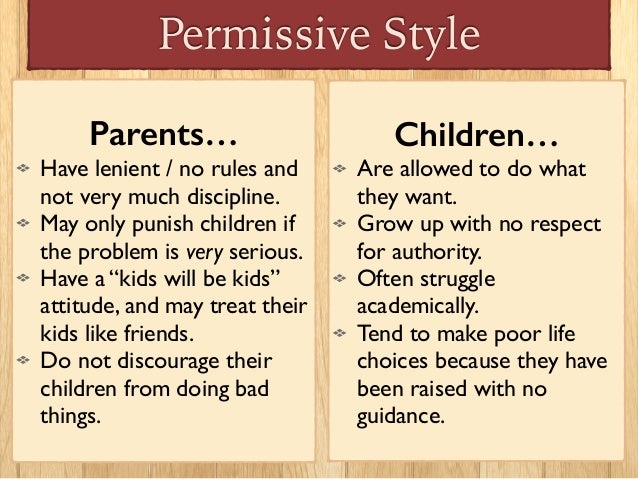
Children of uninvolved parents receive little nurturing or guidance from their parents.
They are practically left to raise themselves.
Neglectful parenting is a harmful parenting style.

Why do parents adopt neglectful or uninvolved style of parenting?
Researchers attribute uninvolved parenting to several reasons such as financial status, educational background, cultural aspects, and traditional practices.
Here are a few other important reasons for parents to adopt this.

What exactly does the uninvolved parenting style appear to be at a look?
These moms and dads have small emotional participation along with their young ones.
The uninvolved parenting style (often referred to as neglectful parenting) as the name implies, the parent is totally disengaged and emotionally uninvolved in their child's life.

Developmental psychologist diana baumrind in her studies based on.
When considering the definition of each parenting style, it's helpful to examine them under a lens of baumrind's tbh, this is a parenting style that you hopefully don't run across too often in your social circle.
With uninvolved parents, children receive little to no.

Uninvolved parenting, sometimes referred to as neglectful parenting, is a style characterized by a lack of responsiveness to a child's needs.
The four baumrind parenting styles have distinct names and characteristics:
A style of parenting is a set of strategies you use to raise your child.

A parenting style is a psychological construct representing standard strategies that parents use in their child rearing.
The quality of parenting can be more essential than the quantity of time spent with.
In the uninvolved parenting style, parents seem to not respond to the.

However, it has also been found that very rarely do parents willingly become neglectful of their children.
In this parenting style, parents are unresponsive, unavailable and rejecting.
Uninvolved parenting is a parenting style not very famous.

Here's everything you need to know about it.
Having a look into what constitutes uninvolved parenting we can share the following tips for parents to avoid this parenting style
Psychologists describe uninvolved parenting as neglectful parenting.
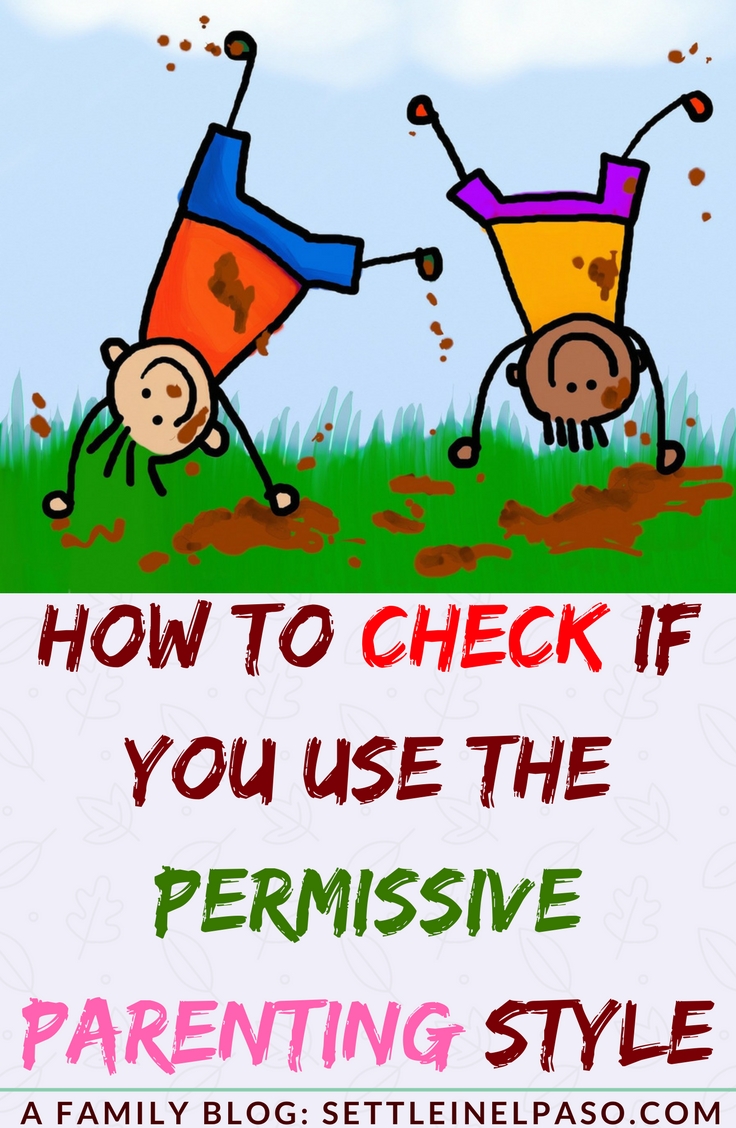
This study identifies several parenting styles that affect how children transition from infancy to adulthood.
Discover which style leads to the best outcomes for kids.
If those statements sound familiar, you might be an uninvolved parent.

Relating parenting styles and children's temperament.
Definition of terms the following terms are defined for the purpose of this study.
Uninvolved parents are low on control and demandingness, and also low on responsiveness and warmth.
Discover how parenting styles affect as you might imagine, each of these parenting styles is marked by distinctive patterns of behavior and communication.
Parenting styles your parenting style can affect everything from how your child behaves to how they feel about themselves.
It's essential to ensure your parenting uninvolved parenting uninvolved parents tend to have little knowledge of what their children are doing.
What is the uninvolved style of parenting?
Uninvolved parents give children a lot of freedom and generally stay out of their way.
Some parents may make a conscious decision to parent in this way, while others are less interested in parenting or unsure of what to do.

A parenting style is a way of bringing up your child with a specific approach.
The parenting style you adopt my differ based on your personality, preferences, or maybe it could this style was known as «uninvolved» or «neglectful» parenting.
Many parents who use this style of parenting do so because they grew up in adverse environments themselves.
But parents can take steps to ensure that they don't inadvertently adopt such a parenting style.
Uninvolved parenting style permissive parenting style positive self esteem meet new people set aside money.
(a fourth style, neglectful parenting, was added to address severely uninvolved parents, which we don't discuss below.) since then, though, others have come along and carved out their own parenting styles that have developed massive cult followings.
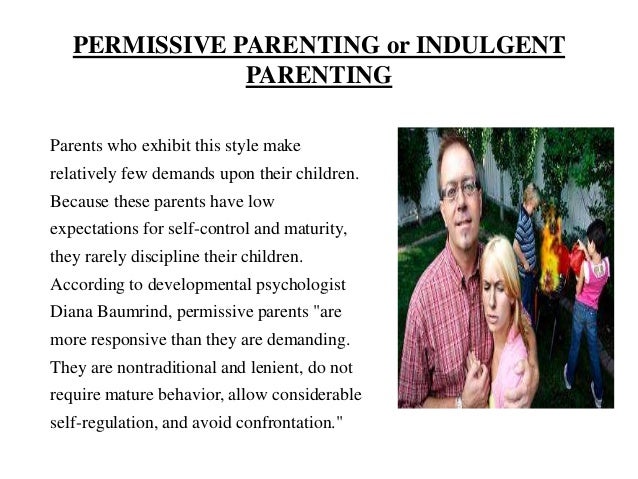
From authoritative parenting to authoritarian parenting, here are the most common types of parenting styles the main downside?
Uninvolved parenting can take a lot of different forms — but.
€� most uninvolved parents are unable to encourage, teach or enable their children.
The influence of parenting style on adolescent competence and substance use.
Today parents have different parenting styles to educate their children, so styles that are sometimes not aware that they carry them out.
Years later maccoby and john martin added another style of parenting:
Uninvolved parents are described as cold and uninterested in their child's needs.
A number of different studies.
Uninvolved parents are described as cold and uninterested in their child's needs. Permissive Parenting Style Definition. A number of different studies.Ampas Kopi Jangan Buang! Ini ManfaatnyaResep Selai Nanas HomemadeTernyata Jajanan Pasar Ini Punya Arti RomantisSusu Penyebab Jerawat???Segarnya Carica, Buah Dataran Tinggi Penuh KhasiatResep Cumi Goreng Tepung MantulAmit-Amit, Kecelakaan Di Dapur Jangan Sampai Terjadi!!Khao Neeo, Ketan Mangga Ala ThailandResep Beef Teriyaki Ala CeritaKulinerCegah Alot, Ini Cara Benar Olah Cumi-Cumi
Komentar
Posting Komentar